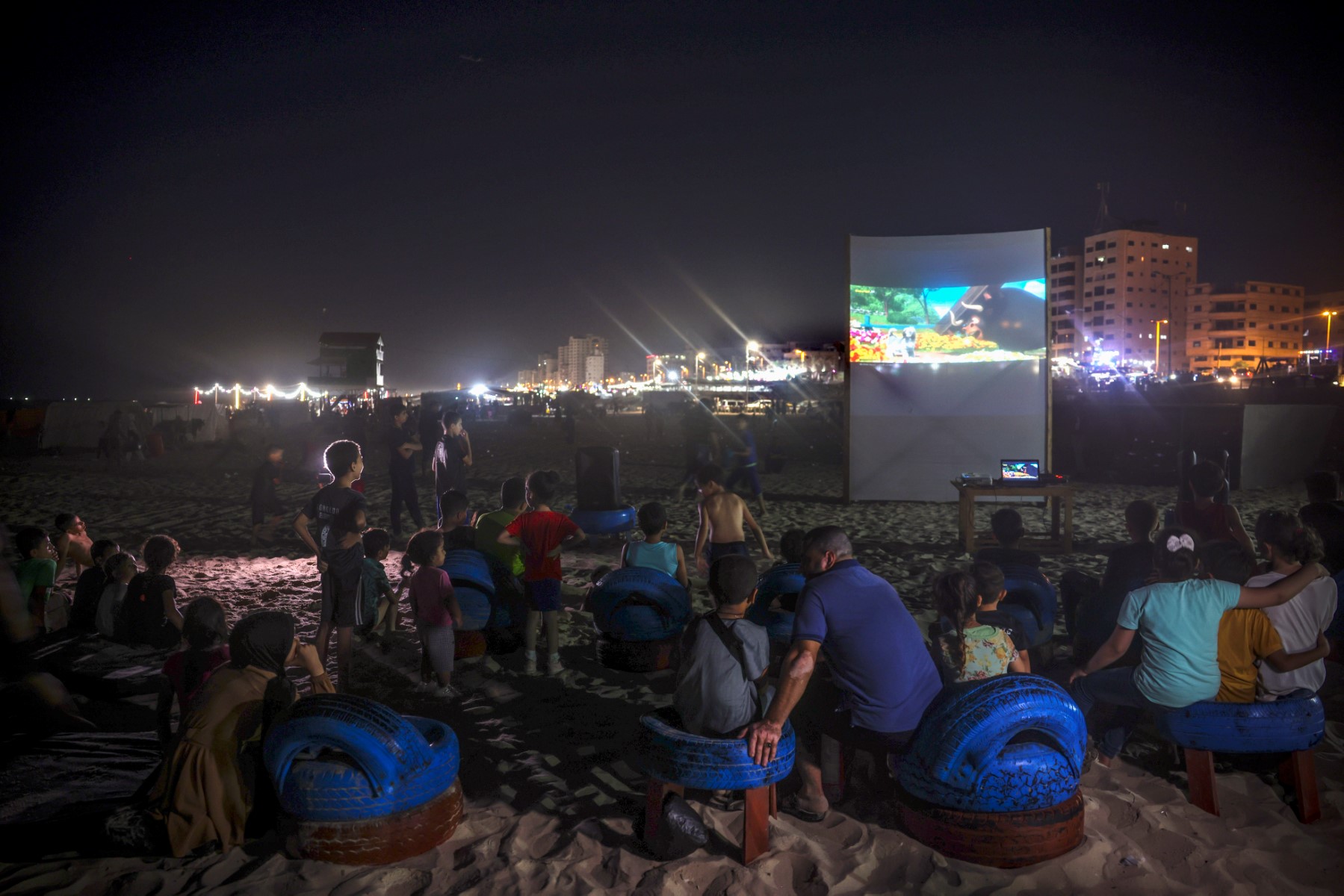Gaza City, Palestinian Territories – Gaza residents took their seats in front of a large projector screen set up on a sandy beach, a rare event in the blockaded enclave that has no operating cinemas.
Over two weeks in summer, the “Cinema of the Sea” festival which ended Monday screened some 15 films, many of them with Palestinian actors or producers.
Providing a respite from the heat, the waterfront “is the only outlet for the residents” in the impoverished territory, said Ali Muhanna, a theatre director involved in the initiative.
Around 2.3 million Palestinians live in the Gaza Strip, which has been under a crippling Israeli-led blockade since Hamas seized power in 2007.
Sitting barefoot in a pink dress at the open-air cinema on Gaza City’s beach, seven-year-old Salma Shamaleh was transfixed by the screen.
“I have never seen a TV this size,” she told AFP as she watched “Ferdinand”, an animated blockbuster that tells the story of a giant but soft-hearted black bull.
The first film screenings in Gaza date to the 1940s, with the opening of the Samer Cinema, whose building now houses a car dealership.
Cinemas were forced to close in the late 1980s during the first Palestinian uprising, or intifada. They reopened following the establishment of the Palestinian Authority in the 1990s but for years have largely been gathering dust.
In 1996, Islamists set a Gaza cinema ablaze.
While not explicitly banned, Hamas authorities fear cinemas may amplify what they view as foreign or Western beliefs that go against Islamic traditions.
There have been some outdoor screenings in recent years, most notably amid the rubble of buildings destroyed in Israeli air strikes during wars fought with Gaza militants.
Like across much of the eastern Mediterranean, Gazans have flocked to the seaside in recent weeks to escape soaring temperatures.
Shamaleh was thrilled by the cinematic experience. “Our house is nearby, I’ll ask my mum for us to come every day,” she said.
‘Happy‘ –
The festival’s program featured “Farha”, a Jordanian film which, through a young girl’s perspective, depicts atrocities committed against Palestinians during the 1948 conflict that led to Israel’s creation.
The hard-hitting film resonated with Mona Hanafi, 50, who watched it with her daughter and dozens of other spectators.
“The film is brilliant in addressing a realistic Palestinian story… The performance and directing are impressive,” she said.
“Seeing the children and people watching the open cinema in Gaza made me happy,” added Hanafi.
Another audience member, Hadeel Hajji, said she had “never seen anything like that in my life”.
“I was with my family when I saw the screen from far away, so I came to watch,” she told AFP.
“Cinema of the Sea” was organized by Al-Bahr Elna Cooperative cafe in partnership with the culture ministry.
The cooperative was established in 2020 by a group of artists, with start-up funding from Palestinian institutions. Since that initial cash dried up, the group has relied on donations.
For Muhanna, the cafe’s founder, the festival has been an opportunity to show films which demonstrate how “Palestinians contributed to producing (cinema) and conveying the values of society”.
Atef Askoul, head of the Hamas-appointed body responsible for approving public art events, said Gazans who suffer from miserable living conditions under the blockade have “the right to watch films and cinema”.








